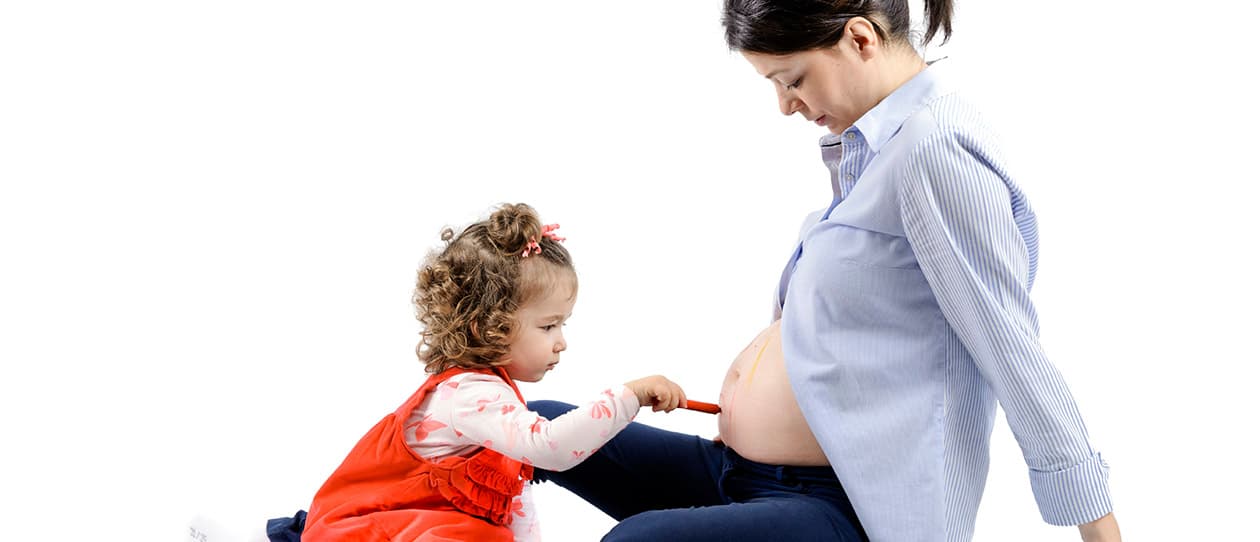
- Health hub/
- Resources for Pregnancy and Preconception/
- Pregnancy series: Common discomforts


Some women have no symptoms at all and feel absolutely wonderful. The following are some of the most common symptoms you might experience during your pregnancy:
Fatigue
Tiredness is particularly common in the first trimester and in late pregnancy. Don’t worry, this is normal! It is your body’s way of telling you that you need more rest as you work hard to develop a new life.
Try to get at least eight hours of sleep every night, and a nap during the day if you can. You might want to start sleeping on your left side, if you find it more comfortable.
Low iron levels can also contribute to fatigue, so make sure you’re getting adequate iron through your diet and/or supplements. You can also get blood tests to check your iron levels.
Morning Sickness
Approximately half of all pregnant women experience nausea and vomiting in early pregnancy, but symptoms are usually mild and lessen by around the 15th week (although in rare cases they can persist throughout pregnancy). Morning sickness is most commonly experienced on arising, but can strike at any time of day.
There are a number of natural remedies which may help alleviate symptoms, including vitamin B6 and powdered ginger (both contained in Blackmores Morning Sickness Formula).
Tips to help ease morning sickness:
- Small, frequent meals and snacks
- Carbohydrates, such as dry toast and crackers, are usually better tolerated; dry crackers before arising may help
- Avoid strong smells, fatty foods and spicy foods; favour bland foods such as bouillon, consomme, rice and pasta
- Drink liquids away from meals
- Drink ginger tea; boil ginger root in water and strain, serve with honey
If vomiting is severe and persistent, see your healthcare professional.
Heartburn
Heartburn and indigestion are common in the final three to four months of pregnancy, as the growing foetus exerts pressure on the stomach. You can reduce this pressure by eating smaller meals more often, chewing well, eating slowly, avoiding tension during meals and by minimising fatty and spicy foods in the diet. Wear loose-fitting clothing, avoid lying down immediately after eating, and sleep with the head of your bed slightly elevated to avoid reflux. Avoid using antacids and do not use baking soda to alleviate heartburn.
Constipation
As your uterus begins to expand you might notice you’re constipated. To help avoid constipation, increase your fluid and fibre intake with fresh or dried fruit (especially prunes and figs), raw vegetables and whole grain cereals and plenty of water and fruit/vegetable juices. Avoid caffeinated drinks (coffee, tea, colas and some other soft drinks) and laxatives.
Varicose veins and haemorrhoids
During pregnancy, some women develop varicose veins (swollen and knotted veins) in their legs or haemorrhoids (enlarged veins in the anus which may protrude and cause pain and itching or bleeding). To help avoid varicose veins during pregnancy, avoid standing for long periods of time, and sit or lie with your legs and feet raised when possible. Walking and regular exercise should also help. Eating a high-fibre diet can help with haemorrhoids, as constipation and straining can make them worse. Resting during the latter part of the day can also relieve the pressure of the uterus on the lower intestine.
Leg cramps
Some pregnant women experience leg cramps, especially during the latter months of pregnancy and particularly at night. You can try getting out of bed, walking around, and stretching and massaging the muscle, wrapping a warm heating pad or warm, moist towel around the muscle. Magnesium supplementation (such as Blackmores Bio Magnesium) may also help.
Fluid retention
Hormonal changes during pregnancy can cause fluid retention, particularly during the latter stages. Sitting or standing for long periods without moving can exacerbate the problem. Try to rest often, with the legs elevated or, preferably, lying on your left side.
Stress
Stress can worsen morning sickness as well as increase fatigue, indigestion and the chances of developing back and neck pain and headaches. Stress and anxiety can also reduce blood flow through the uterine arteries so that your baby receives less blood and oxygen supply. This can affect your baby’s development and contribute to low birth weight. So if you are feeling stressed, you might want to take time to meditate, go for a walk, relax or take a nap. You may want to sign up for prenatal yoga classes, but get your practitioner’s approval first. It is also important to continue doing the things you enjoy and get emotional support from your partner, family and friends, or even a counsellor. Relaxation music may help to keep you calm.
When should you seek professional advice?
If you experience any of the following symptoms, promptly see your healthcare professional: persistent headaches, persistent nausea and vomiting, visual disturbances, high blood pressure, pain or cramps in the lower abdomen, contractions, vaginal bleeding, breaking of the waters, swelling of the hands or face, reduced urination, illness or infection.




